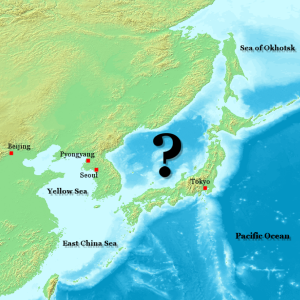State Legislation on the “Sea of Japan” / “East Sea”
 Recently certain Korean American groups have begun lobbying for state legislation requiring public school textbooks to explain that the “Sea of Japan” is also called the “East Sea.” Japan prefers and uses the former, while South Korea the latter. Bills on this issue are currently at varying stages of adoption in Virginia, New Jersey, and New York, and are part of a broader campaign to raise public awareness about Japan’s colonial and wartime behavior. In this post, I want to address briefly the constitutionality of this legislation under the doctrine of foreign affairs preemption. My view is that the legislation is likely permissible and not preempted.
Recently certain Korean American groups have begun lobbying for state legislation requiring public school textbooks to explain that the “Sea of Japan” is also called the “East Sea.” Japan prefers and uses the former, while South Korea the latter. Bills on this issue are currently at varying stages of adoption in Virginia, New Jersey, and New York, and are part of a broader campaign to raise public awareness about Japan’s colonial and wartime behavior. In this post, I want to address briefly the constitutionality of this legislation under the doctrine of foreign affairs preemption. My view is that the legislation is likely permissible and not preempted.
I’ll begin with the key features of foreign affairs preemption. In American Insurance Association v. Garamendi, the Supreme Court explained that the constitutionality of a state action carrying more than “incidental” foreign policy consequences hinges on whether the action conflicts with federal foreign policy. In the presence of a clear conflict, the state law is invalid. Absent such a conflict, constitutionality depends primarily on the strength of the state interest at stake, as judged “by standards of traditional practice.” This means that non-conflicting state action is likely to be permissible if it falls within a traditional competence of state governments.
